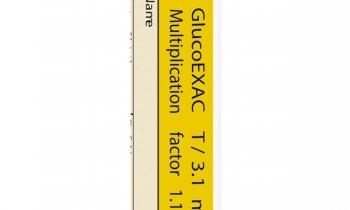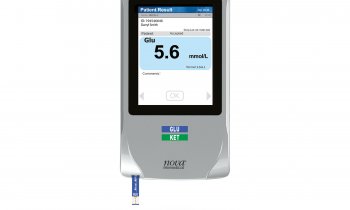FRANCE: Thousands will lose healthcare cover
By Keith Halson
"If you think 53 makes you old enough to retire, then fine, go ahead and retire. But don't expect the state to pay for it."
President Nicolas Sarkozy, during his election campaign

The French national health service is set to hit a record deficit of Euro 11.7 billion in 2007 and the government is about to introduce measures to stem the financial hæmorrhage, including tackling the issue of early retirement benefits for French nationals – as well as the thousands of EU citizens (e.g. Dutch, British, Belgian, German, etc.) who live in France but are not working, or who have taken early retirement. These expatriates will be classed as economically ‘inactive’ and as such will lose their right to a carte vitale, which entitles them to healthcare treatment in this country.
The new ruling follows the application of EU directive 2004/38, which states that, ‘in order to live in another member state, EU citizens must have health cover and sufficient resources to support themselves without recourse to the social assistance of the host member state’.
This ruling was brought into force in the French administrative system by law number 2006-911 of 24 July last year and subsequently by decree number 2007-371 on 21 March this year. It puts France broadly in line with other EU countries such as Spain and Portugal. Reaction to the moves has been swift. London MEP Mary Honeyball is drumming up support for a motion to the European Parliament opposing the new rules. She says EU nationals should be able to live in other member countries with no loss of rights to the state healthcare they could expect at home. She insists: ‘There should be full reciprocity between EU counties; citizens should be able to live wherever they want without their healthcare being affected.’
Mary Honeyball has identified key groups likely to be badly affected. One of these is wives who benefit from state healthcare because their husbands are older and of state retirement age but who may find themselves with no cover if they are widowed.
Talks are taking place with MEPs from the Netherlands, Belgium and Germany, who also have citizens affected by the change. Ms Honeyball also wants to clarify whether early-retired or non-working foreigners from outside the EU will still be able to access the French healthcare system while EU citizens – those targeted in the new rules – will not.
Europe has actively encouraged the free movement of citizens between member states. When that was merely a trickle, they were absorbed without much difficulty. But now thousands are migrating, the new host countries must reconsider the consequences.
However, the position over modifying the healthcare coverage available to expatriates is confused. In the past, those arriving in France without an E121 card (issued to citizens officially retired in their country of origin) or an E106 or E109 (valid for two years and issued to those who had paid in to their country’s state health insurance scheme for two years before moving to France) could join the French healthcare system by paying an affordable subscription to the CMU (Couverture Maladie Universelle).
This entitled them to the carte vitale and consequently the range of standard medical reimbursements. This means, for example, a 70% refund of the cost of a doctor’s appointment, which is what French citizens receive. However, on 31 March 2008, the carte vitale will be withdrawn from any EU expatriates not working or not officially retired. And if their E106 cover has ended, they will have to pay for private insurance, estimated to be at least ?2,000 per person per year for basic health cover. When they reach retirement age, they will then be entitled to an E121 and their cover and affiliation to the CMU will be restored. People already officially retired and holding an E121 will not be affected by the new ruling.
However, many disabled people and those suffering from long-term or pre-existing conditions, such as cancer, lung disease or diabetes, will be unlikely to obtain private cover and may be forced to move back to their home countries to try to re-establish their entitlement to medical care.
The change in the law has been further clouded with different help lines and official bodies producing different answers at different times. Some callers were recently being told that health cover would not be available to newcomers to France and withdrawn from those already affiliated, while others were informed that the situation was changing and more news would be announced soon.
In September, a spokeswoman for the French social security ministry (Sécu) said that people resident in France for five years, without interruption, should not be affected by the new rules,
as they have officially acquired a permanent right to residency under the Code de l’Entrée
et de Séjour des Etrangers (art. L122-1).
However, she added that this had yet to be confirmed and that no formal instructions had yet been given to local authorities to act. Once they had, she said, the new regulations would be applied to those affected ‘across the country’. However, even before the change was publicly announced, some local offices of the area health authority CPAM (Caisse Primaire d’Assurance Maladie) began sending out letters to EU expatriates already in the health system, informing them of the ruling and clawing back their certificates of state health cover and carte vitale.
The spokeswoman concluded: ‘On ne sait pas sur quel pied à danser.’ (‘We don’t know whether we are coming or going’).
At the time of going to press, a statement from the French health ministry was still due to be circulated to all area health authorities (CPAMs).
* Ruling details: http://www.securite-
sociale.fr/comprendre/europe/europe/cmu_inactifs.htm
Health E-forms
Confusion and misinformation about the health E-forms is widespread and many European citizens entitled to them are unaware that they even exist.
They are an instrument by which the transfer of medical benefits from one EU member state to another is facilitated through conventions signed by those member states under provisions in the Treaty of Rome.
Each of the three health E-forms covers a different aspect of that transfer.
E 106 covers the holder and his or her dependants living in another member state by affiliation to its health service for up to two years. To qualify, holders must be taking early retirement and to have worked and paid contributions to the national insurance system in their country of origin for at least two years before leaving to reside in another member state.
E 109 covers a family living in another member state. To qualify, one spouse must remain living and working in the country of origin and be paying contributions into its national insurance scheme.
E 121 covers the holder and his or her dependants living in another member state by affiliation to its health service for the rest of their lives, or until each one qualifies for benefits in their own right. The qualifying conditions are that they must have reached official retirement age (in their country of origin, not that of their host country) and be in receipt of a state retirement pension or a widow’s pension, or being paid long-term incapacity benefit.
30.10.2007








